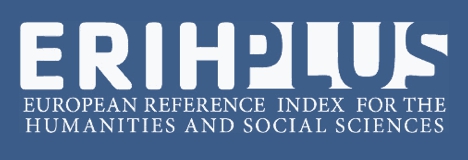A GEOGRAPHY THAT IS PRACTICED ON A DAYLY BASIS
Abstract
This essay seeks to elucidate the meaning of a Geography that is practiced on a daily basis, evidencing it from unreflective and first qualities, a geographicity (DARDEL, 2011). It is based on the assumption that the spatial practices of everyday life reveal themselves in specific situations in time and space, creating conjunctures and contexts that enable, through thinking in scale and moments of perceptual synthesis, the construction of territorialities, as well as the regionalization of our actions day after day. We conclude that the spatial dimension of everyday practices and actions - a dimension inevitably intertwined with life and living - concerns “cuts” that range from near to distant, from concrete to abstract; and that these ways of creating and producing spaces on a daily basis inexorably entangle us in nets of relationships and situations that will permeate our everyday places, territories, landscapes, and regions.
References
BEZZI, M. L. Região - Uma (re)visão historiográfica - Da gênese aos novos paradigmas. Santa Maria: Editora da UFSM, 2004.
CARVALHO, C. G.; SERPA, A. O samba de roda como símbolo e marcador regional do Recôncavo baiano. Entorno Geografico, v. 11, p. 68-85, 2015.
CARVALHO, C. G.; SILVA, R. O.; SERPA, A. Espaço vivido e identidade regional: um olhar sobre o leste e o oeste do Recôncavo Baiano. GEOSABERES: Revista de Estudos Geoeducacionais, v. 6, p. 224-237, 2015.
CGI.br. Comitê Gestor da Internet no Brasil. Pesquisa sobre o uso das tecnologias de informação e comunicação nos domícilios brasileiros [on-line]: TIC domicílios 2015. São Paulo: Comitê Gestor da Internet no Brasil, 2016.
DARDEL, E. O Homem e a Terra. Natureza da realidade geográfica. Tradução de Werther Holzer. São Paulo: Perspectiva, 2011.
DIAS, C. C. S. Práticas socioespaciais e processos de resistência na grande cidade: Relações de solidariedade nos bairros populares de Salvador. 2017. Tese (Doutorado em Geografia) – Instituto de Geociências, Universidade Federal da Bahia, Salvador, 2017.
HEIDEGGER, M. Ser e tempo. Tradução revisada de Marcia Sá Cavalcante Schuback. 6. ed. Petrópolis: Editora Vozes; Bragança Paulista: Editora Universitária São Francisco, 2012.
KELLER, S. El vecindário urbano: una perspectiva sociológica. 2. ed. México: Siglo XXI ed., 1979.
JUNQUEIRA, D. O que aconteceu com as lan-houses no Brasil? O Olhar Digital. 2012. Disponível em:
MERLEAU-PONTY, M. Fenomenologia da percepção. Tradução de Carlos Alberto Ribeiro de Moura. 3. ed. São Paulo: Martins Fontes, 2006.
OXFAM BRASIL. A distância que nos une – Um retrato das desigualdades brasileiras. Relatório de pesquisa, setembro de 2017.
RAMOS, M. E. R. Bairros Negros: uma lacuna nos estudos urbanísticos - um estudo empírico-conceitual no Bairro do Engenho Velho da Federação, Salvador (Bahia). 2013. Tese (Doutorado em Arquitetura e Urbanismo) – Faculdade de Arquitetura, Universidade Federal da Bahia, Salvador, 2013.
RÊGO, J. Territórios do candomblé: a desterritorialização dos terreiros na Região Metropolitana de Salvador, Bahia. GeoTextos, Salvador, v. 2, n. 2, p. 31-85, 2006.
SANTOS, J. T. Mapeamento dos terreiros de Salvador. Salvador: Ceao/UFBA, 2008.
SANTOS, M. A Natureza do Espaço. Técnica e tempo, razão e emoção. São Paulo: HUCITEC, 1996.
SCHERER-WARREN, I. Metodologia das Redes no Estudo das Ações Coletivas e Movimentos Sociais. In: COLÓQUIO SOBRE PODER LOCAL, 6., Salvador, 1994. Anais... Salvador: NPGA/UFBA, 1996. p. 165-176.
SCHERER-WARREN, I. Redes Sociais: Trajetórias e Fronteiras. In: DIAS, L. C.; SILVEIRA, R. L. L. da (Org.). Redes, Sociedades e Territórios. Santa Cruz do Sul: Edunisc, 2005. p. 29-50.
SERPA, A (Org.). Cidade Popular: Trama de relações sócio-espaciais. Salvador: EDUFBA - Editora da Universidade Federal da Bahia, 2007
SERPA, A. Lugar e mídia. São Paulo: Editora Contexto, 2011.
SERPA, A (Org.). Territórios da Bahia - regionalização, cultura e identidade. Salvador: EDUFBA - Editora da Universidade Federal da Bahia, 2015.
SERPA, A. Justiça espacial e cidade digital: espaço como meio operacional no Brasil. Boletim Goiano de Geografia, v. 37, p. 409-428, 2017.
SERPA, A. Leisure and Work in Contemporary Urban-Metropolitan Space: Perspectives, Tendencies, and Utopias. In: ALVARES, L. C.; BARBOSA, J. L. (Org.). Urban Public Spaces From Planned Policies to Everyday Politics (Illustrated with Brazilian Case Studies). Cham, Switzerland: Springer International Publishing AG, 2018a. p. 73-87.
SERPA, A. Diversidade e desigualdade em um contexto de fragmentação socioespacial: avanços e recuos. Ateliê geográfico (UFG), v. 12, p. 22-38, 2018b.
SERPA, A. Por uma Geografia dos espaços vividos. Geografia e Fenomenologia. São Paulo: Editora Contexto, 2019.
SERPA, A. Lugar, paisagem e experiência. Geograficidade, v. 10, 2020 (no prelo).
SERPA, A. S. P.; ARAÚJO, H. B. N. de; BORGES, S. S. Capoeira et Internet: tactiques de territorialisation à Salvador, Bahia. Géographie et Cultures (Paris), v. 78, p. 111-128, 2011.
SOUSA, A. N. Orla Oceânica de Salvador: um mar de representações. Salvador: EDUFBA - Editora da Universidade Federal da Bahia, 2011.
TERREIROS cumprem papel social em suas comunidades. Jornal A Tarde, Salvador, 12/5/2007.

This work is licensed under a Creative Commons Attribution-NonCommercial 4.0 International License.
Policy Proposal for Free Access Journals
Authors who publish in this journal agree to the following terms:
a. Authors retain the copyright and grant the journal the right of first publication, with the work simultaneously licensed under the Creative Commons Attribution License which allows the sharing of the work with acknowledgment of the authorship of the work and initial publication in this journal.
b. Authors are authorized to take additional contracts separately, for non-exclusive distribution of the version of the work published in this journal (eg publish in institutional repository or as a book chapter), with acknowledgment of authorship and initial publication in this journal.
c. Authors are allowed and encouraged to publish and distribute their work online (eg in institutional repositories or on their personal page) at any point before or during the editorial process, as this can generate productive changes, as well as increase the impact and The citation of published work (See The Effect of Free Access).





















